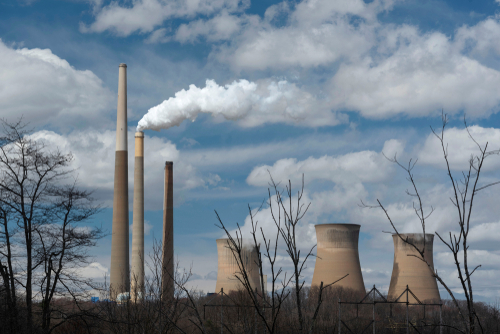
Pennsylvania’s electricity supply will likely be even tighter when the coal-powered Homer City Generating Station east of Pittsburgh goes offline permanently this summer, business and political leaders predicted after this week’s announcement that the plug on the plant would be pulled by June 2.
The ownership of the 52-year-old plant, Homer City Generation LP, said Monday it would retire all three generating units, which together can produce nearly 1,900 megawatts (MW) of power and employs more than 100 people. The plant is the largest coal-power plant operating in the commonwealth.
The owners said the decision was based on several factors, including the low price of natural gas, a rise in the cost of its ongoing coal supply, unseasonably warm winters, and increasingly stringent environmental regulations. The Regional Greenhouse Gas Initiative (RGGI) also received a fair share of the blame. Homer City said that RGGI will severely limit its long-term planning and it will handcuff the business in making further investments with an uncertain regulatory future.
The industry-labor coalition Power PA Jobs Alliance noted in a statement that just last year Homer City announced its intent to continue operations. “Unfortunately, due in large part to the plant killing RGGI carbon tax and anticompetitive policies inherent within the PJM capacity market, the worker and community optimism from last year’s announcement was short-lived,” the alliance said.
State Senate Majority Leader Joe Pittman (R-41) said, “Removing this source of electricity production from our power grid will certainly not help to keep down costs for consumers.”
“The impacts of this closure will be felt by communities throughout Indiana County and the entire region in Western Pennsylvania,” said Pittman, who represents the plant’s district. “Beyond our area, this troubling news is a realization that we as a nation are at risk of losing the reliability of our power grid.”
The Allegheny-Fayette Central Labor Council acknowledged the continuing growth of renewable energy in Pennsylvania but said adhering to RGGI’s agenda was also costing jobs. “When the last administration announced plans to join RGGI, we said it would result in job losses, higher electricity costs and a weakened electrical grid,” said President Darrin Kelly. “The reality is that too many working families are being left behind in that transition.”
The Pennsylvania Coal Alliance said the retirement of coal-fired generation would only multiply the challenges for the energy grid going forward. “Poor policy decisions, including the mere threat of Pennsylvania joining the RGGI carbon tax scheme, coupled with serious flaws in PJM’s capacity market have led to unfortunate realities like the closure of Homer City,” the alliance said.
“PJM recently acknowledged significant grid failure concerns as it increasingly relies on sources that do not have on-site fuel, and when needed most do not perform when called upon.”
Homer City Generation announced the closure of the plant just days after PJM reported that it had secured enough commitments from generators to cover the multi-state grid’s electricity needs for the 2024-2025 year, also known as a “capacity auction,” at an average price of $28.92 MW per day, down from $34.13/MW per day for the 2023/2024 period. While PJM officials assured the public that the grid still maintained a “healthy reserve margin,” heading into summer, they noted that a three-year trend of less electricity being offered for sale had continued, and local transmission constraints could inch prices higher in some areas.
“The capacity auction continues to be our best tool to ensure reliability at competitive prices in PJM,” said President and CEO Manu Asthana. “The prices we see in certain areas also suggest that supply and demand conditions are tightening in these areas.”
Homer City Generation said it was exploring options for the current plant site, including developing renewable power projects that would take advantage of the plant’s valuable connections to the larger grid.
“We will continue to look to utilize all of Homer City’s hard assets, including its existing infrastructure, to find a higher and better use(s) to continue to support the community,” said Homer City President and CEO William A. Wexler.